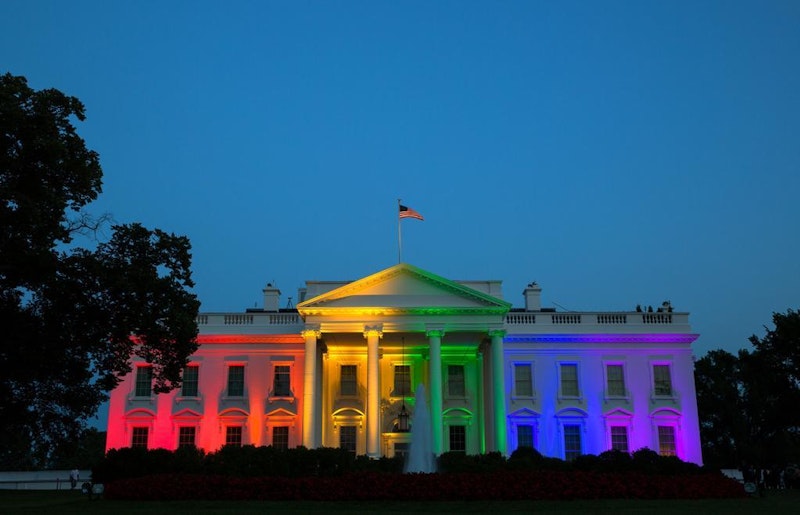Study Notes
Obergefell v Hodges 2015
- Level:
- A-Level
- Board:
- AQA, Edexcel, OCR, IB
Last updated 22 Mar 2021
This Supreme Court case ruled that the right to marry is extended and guaranteed to same-sex couples under the Equal Protection Clause and the Due Process Clause, found in the Fourteenth Amendment. The effect, that it legalised same-sex marriage across the United States.

Background to the case:
Obergefell v Hodges is a collection of cases that were consolidated before going to the Supreme Court. The original set of cases came from Michigan, Ohio, Kentucky and Tennessee. All the decisions from the district courts were taken to the Sixth Circuit Appeals Court. The Sixth Circuit rejected the claim, and upheld the same-sex marriage bans. This split the Sixth Circuit and warranted the intervention of the Supreme Court.
The Case:
The Court posed two questions that required answering:
1) Does the 14th Amendment require a state to license a marriage between two people of the same sex?
2) Does the 14th Amendment require a state to recognise a marriage between two people of the same sex when their marriage was lawfully licensed and performed out of state?
The case was heard in April 2015, and in June 2015 the court ruled in a 5-4 decision that the Fourteenth Amendment meant that all states must recognise same-sex marriages granted in other states and must also grant same-sex marriages. The Court found that same-sex marriage bans are a violation of the 14th Amendment under both Due Process and Equal Protection clauses.
You might also like
US Supreme Court Cases to Watch
28th September 2015
The Bill of Rights
Study Notes
Gideon v Wainwright 1963
Study Notes
Griswold v Connecticut 1965
Study Notes

Antonin Scalia’s death – a chance for Obama to leave a legacy?
21st February 2016

Clarence Thomas (finally!) asks a question
1st March 2016
Interested in justice - from an American standpoint?
25th March 2021
Excellent MOOC on American Government
13th April 2021